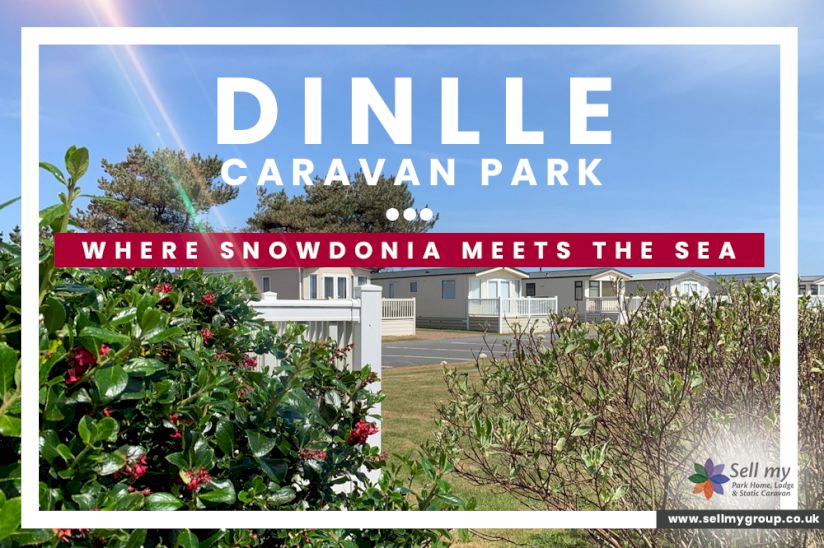Buying a Static Caravan – your need to know guide
Posted by Justin Allitt in Advice – Buying, Owning or Selling a Static Caravan, November 4, 2019

If you are buying a static caravan for yourself, or if you intend to let it out, there are plenty of questions to ask. We understand that buying a static caravan can seem a little daunting however, we are here to help.
If you’re buying a static caravan for the first time, here are answers to many common queries you’re likely to ask. If your question or query isn’t here, don’t worry. Why not take a look at our other guides to buying and setting up a static caravan for more information?

How Much Does it Cost to Buy a Static Caravan?
Firstly, the price you pay when buying a static caravan will largely be determined by unit age and park location. Secondly, there are no average rates for static holiday caravans from park to park. It is therefore important to make sure to take a look around for the best prices when looking for static caravans for sale. Do bear in mind, however, that the more you pay, the better the investment, in most cases.
Is It Worth Paying More for a Static Caravan?
When buying a static caravan, you will generally find that the more you pay, the more features you will receive. As well as this, you are also likely to find bigger caravans that will cost more. Additionally, this isn’t to say that it’s not worth looking for a bargain, and we recommend that you do.
Should I Always Buy New?
Many people will recommend you should buy a new static caravan as opposed to a used model. This is because second-hand caravans may arrive with extra costs and problems that you may need to fix in the long run.
As a result, you will need to explore whether it is worth paying more for a new caravan upfront, or more over time to maintain an older caravan. If you are buying to let, you will likely find more interest in a new model. This will also be easier for you to manage as a landlord.

How Do I Take Out Caravan Finance at a Park?
If you want to pay for a static holiday caravan on finance, you should discuss matters with your chosen park. They may be able to help you sign a deal where you can spread the cost of ownership. Chiefly, these deals will have high interest applied, which means the cost of spreading, may be higher in the long run than to pay outright. Make sure to look through any paperwork you receive carefully. You should consult a solicitor or financial advisor if you have any concerns. Doing this will help buying a static caravan more simple.
Can I Buy a Static Caravan to Live In?
It’s generally advised that you only use static holiday homes for holidays and not to live in. Many static caravans aren’t built to the BS3632 ‘residential standard’ and aren’t built to live in. Also, most residential parks won’t have static caravans for sale. In which case, you will then be on a holiday park and won’t receive the same protection and standards you expect from a residential park. Ultimately, you won’t be covered by appropriate park licensing. So, unfortunately, you cannot buy a static caravan on a holiday park to live in, but if you wish to explore this subject further, read more, click on the link below;
‘Can you live in a Static Caravan all Year Round?’
Can I bring pets when I buy a static caravan?
Different parks will have different rules, and we advise that you check this area with your park operator. Although you will have ownership of your static caravan, some parks operate a strict no-pets policy. Some however, are open and encourage you to bring animals with you.
Many holiday parks in the countryside will allow dogs, for example, as local walks will appeal to dog walkers. If buying a static caravan rests on having pets with you, searching for a suitable park is essential. You can click here to see which parks are animal friendly.
What Fees Will Holiday Parks Charge?
Site Fees for hosting a static caravan at a holiday park will vary. These fees are based on location, amenities, size, and additional services. It is worth researching holiday park prices for the area where you wish to have a holiday home. Do be aware, too, that holiday parks will charge you for gas and electric, as well as other authority fees, where applicable. Make sure to discuss fees and your contract with a park operator in detail before you proceed with buying your static caravan.
How Long Can I Pitch at a Holiday Park?
This can vary from park to park, though usually from 15 years to 99 years for a new static caravan. If the static caravan is second hand it will be the remaining time on the lease. However, some parks don’t have set limits, meaning that this is ultimately up for negotiation.
Can I Have A Pitch Anywhere?
On a new park, many parks will let you choose a pitch first-come-first-served. A better-located pitch may cost you more money, say, for example, the holiday home overlooks a lake. Therefore, most of the time, when buying a static caravan, you will simply need to choose from zones allocated by your park. In some cases, however, holiday parks will allow you to reserve pitches for a deposit.
Should I Buy Insurance?
Yes. Even if you are only going to use your static caravan as a holiday home, make sure to take out coverage for both the caravan itself and for its purpose as a holiday home. If you are going to let the caravan, make sure to take out business insurance, income support, and public liability cover. These policies are worth the monthly costs for the peace of mind they bring. See more on static caravan insurance here.
Who Keeps and Maintains My Static Caravan?
While you will be located on a holiday park site, it is generally going to be your responsibility to make sure that you maintain and care for your holiday home. Some parks offer to drain down and maintain your caravan through winter care schemes, particularly during the colder months. There is usually a fee for this service. Otherwise, you can expect to hold complete jurisdiction over your caravan. This may vary from park to park, however, so make sure to check your contract in detail. Read more on caravan maintenance here.
Can I Make Money From My Static Caravan?
The short answer is yes, and you can let your holiday home providing your park agrees to such measures. Register with HM Revenue and Customs for self-assessment and pay regular taxes. You will also need to pay for furnishings and safety features to ensure your tenants can be assured of safe, comfortable holidays. However, do take this process carefully, as there are some schemes and services out there which come with complex terms and conditions attached. Make sure to consult a solicitor for advice if there is anything you are unsure of.
Will Parks Be Open All Year Round?
This depends on the site license and the desire of the park operators to stay open. Generally, you can expect holiday parks to stay open for up to 10 out of 12 months, but this may vary. Some people will want to holiday in the colder months, but some parks may not see the economic benefits of staying open. This is something you should discuss with your operator before purchasing a holiday home.
What Can I Expect From My Park Contract?
When discussing buying a static holiday caravan from a park operator, your contract should cover your basic rights as a holiday home owner. Make sure to look for information on fees, changes to rates, and what may be expected of you as an owner at the park. Take time to check your contract for information on how long you can pitch up for, and where. Some contracts can be long and complex, which is why it is essential to make sure you read everything carefully. Many park operators will be happy for you to take your contract away, or for you to discuss your options with a solicitor. Read more about contracts and legal matters here
When Can I Sell My Caravan?
You must check any contracts or licenses you sign with your park operator before selling your static caravan. In most cases, park operators will let you sell your holiday home if you adhere to specific terms. When you will be able to sell your caravan, too, will depend on the terms you sign. Make sure you retain any contracts or documents you sign for your home, as otherwise, your ability to sell later on may be seriously compromised.
If you are thinking of selling your static caravan, go to our Selling Page.
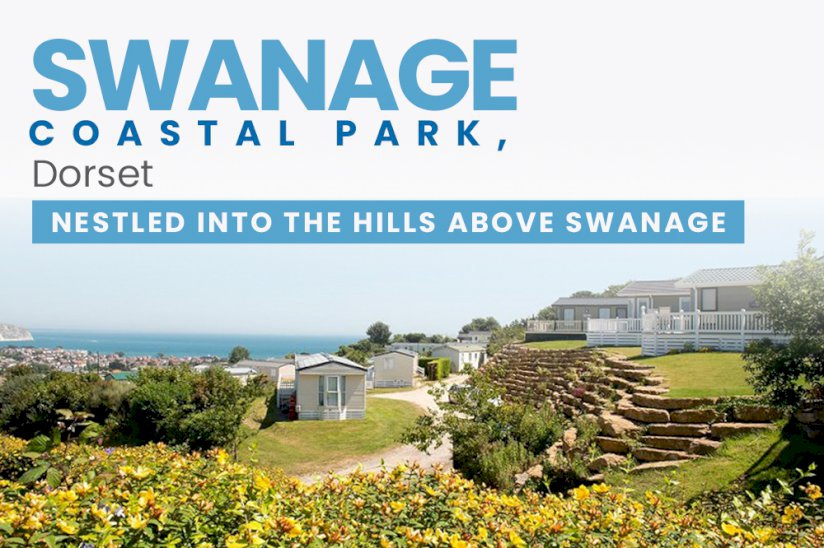
Can Anyone Stay in My Caravan?
Yes – within the contract you sign with your park operator. As the owner, you can allow friends and family to stay in your static home, or you can choose to let it. It is free for you to use as you wish. This is providing you do not do so for any illegal activities or those which are likely to harm other residents or the park and its reputation. These are general terms, however, which means it is always a good idea to look through the fine print with a solicitor.
Static Caravan Terminology and Jargon Buster
with an industry full of words not used in the ordinary parlour, we thought we would put together a helpful guide for static caravan terminology, a jargon buster for the holiday industry.
We have created an A-Z list of static caravan terminology below;
Account
The account you hold with the park will be linked to your static caravan, it is used for bills, services, site fees, subletting, etc. This is not a bank account and will be used solely for your holiday home.
Booking
When holiday parks talk about a booking, it is the same as any other holiday booking – they mean someone has booked your static caravan on a date you have specified to let it out.
British Holiday Home and Holiday Park Association (BH&HPA)
The British Holiday & Home Parks Association are a professional organisation that represent holiday park owners and the industry as a whole. They oversee lobbying governments for matters related to British holiday homes and holiday parks.
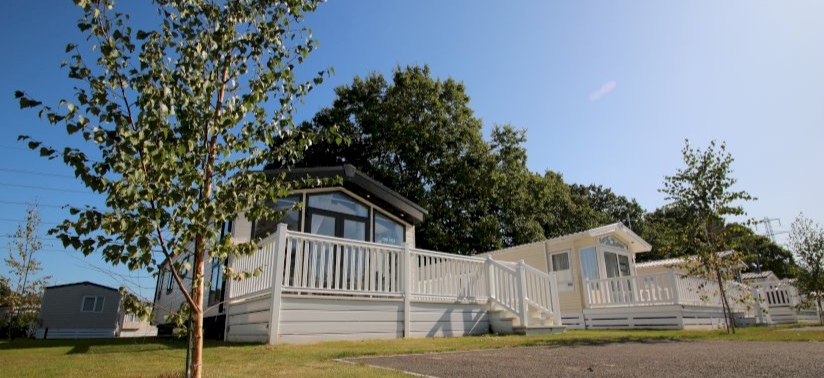
Chassis
Common in static caravan terminology, the chassis is the metal frame underneath a static caravan, usually made of mild steel or in newer homes galvanised steel. If you are buying preowned it is best to check the chassis for any signs of damage.
Connections
When you buy a static caravan it will need setting up on the pitch, connections refer to everything from electric and gas to putting the unit on blocks and axel stands. This is usually a one-off cost and is all part of preparing your holiday home for use.
Decking or Verandah
Your holiday home may have decking or a verandah, a raised area surrounding your holiday home usually made from wood or UPVC, perfect for enjoying the sunshine or even a spot of gardening. There are many different designs to choose from and they can provide vital access for owners or visitors with reduced mobility. Read our full guide to decking here;

Drain Down
Drain down is the process of removing the water from the caravan to prevent it from freezing in the colder months. Modern central heated caravans will contain the necessary anti-freeze to avoid freezing problems.
Finance/Funding
Most parks will offer finance packages to help fund your holiday home purchase, this gives you the option to pay in affordable monthly instalments.
Finance is a form of credit, therefore you will be subject to necessary credit checks, you should also consider the interest rates. Read our full guide to static caravan finance here;

Fleet/Holiday Fleet
Another common term in static caravan terminology. Holiday parks can own a ‘Fleet’ of their own caravans, used for renting out to holidaymakers. They sometimes also call these the ‘Holiday Fleet’.
Fold-out Bed
Approximately 90% of static caravans come with a fold-out bed as a standard, so you can fit extra guests easily. These are normally found in the lounge sofas.
Furniture; Fixed or Freestanding
The furniture in a caravan can be built-in or freestanding. Fixed furniture is designed as part of the interior and it can’t easily be moved, this could include tables bolted down or beds attached to the wall. Also, the freestanding furniture can be removed, moved, or replaced with ease.
Guaranteed Letting/ Guaranteed Let
Usually offered by larger parks, this is where park operators guarantee you the money upfront for specified subletting dates. It is then up to the site to let out and collect the money. This can be particularly useful in offsetting the costs of owning a static caravan. You may find that you could earn more through standard subletting, so it is important to research the best option for you.
Holiday Status
Part of static caravan terminology, the status of the park or plot the home is on. Holiday status prohibits the home from being lived in twelve months a year. As the name says, the home should be used as a holiday home.
Insurance
Getting your static caravan insured is a must. Just like you’d insure a brick and mortar property you should make sure your holiday home is covered. Read our full guide to static caravan insurance here;

Lodge
Lodges can be sited on holiday or in residential parks. They can range in size into excess of 20 feet. Nowadays, lodges are generally built to residential standards usually.
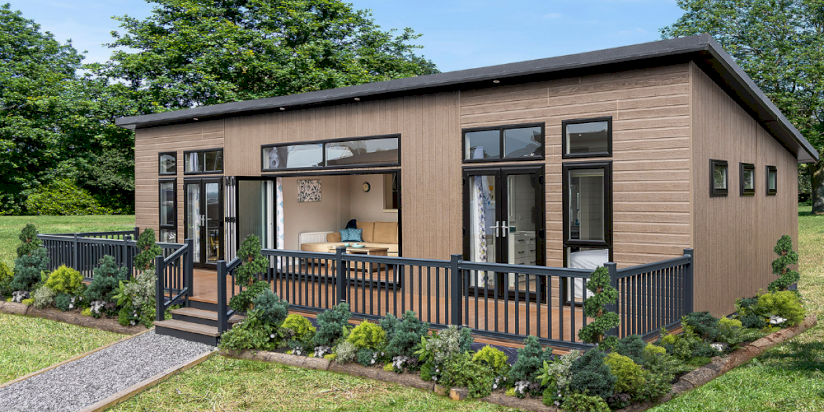
National Caravan Council (NCC)
The National Caravan Council are representatives of the caravan and holiday park industry. They provide accreditation to park operators, with a focus on delivering good service to customers.
Owners
‘Owners’ refers to those who own the holiday home. Whereas ‘Holiday Makers’ describes those who rent one for the duration of their stay.
Park Home
Park homes are very similar to lodges but are usually sited on residential parks, meaning they can be a person’s main UK Residence. Furthermore, they are built to BS3632 standards ensuring they’re suitable for year-round living.
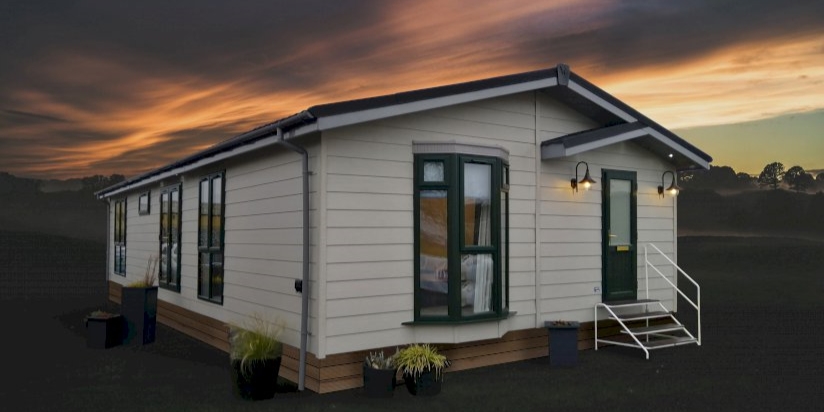
Pitch
These are interchangeable terms among static caravan terminology. A pitch is the individual area of the park that each static goes on. For example, some will have sea views or be close to facilities, others might have gardens or a patio. The pitch fee is what you pay to put your caravan in place and the price will vary depending on its size, location, views etc. Read our full guide to pitch fees here;
Pitch License Agreement
A Pitch License Agreement is like a tenancy agreement, this is a binding document between the site owner and static caravan owner. This will set out the rules and regulations to be upheld by both parties. This should be read over this carefully and raise any queries before signing. The document is subject to change.
Pitch Fees / Site Fees / Ground Rent
These are interchangeable terms in static caravan terminology and is the charge for keeping a static caravan on a pitch. It is essentially the ground rent you pay for the year. This is a standard fee common in the holiday industry. See our Guide on Static Caravan Pitch Fees;

Ramtech
Ramtech is an alarm system. Motion sensors connected to a pager alert park staff of any intrusion. Some insurance providers will even offer a discount if you install a Ramtech system.
Rates
This refers to an amount payable to the site in exchange for using water and other site facilities. Rates are similar to council tax but is paid to the site owner rather than the local authority.
Residential Status
This is when you can live on the plot. The local authority will issue a site license for a park, this could be holiday, residential or even mixed-use. Holiday parks do not allow residential living and you will need another permanent address, so it is important to check the license.
Season
The season is the period of time that the park is open. This varies from park to park, many offer owners a longer season with twelve months now being typical.
Static Caravan
Static caravans are built to sit in one position, they are larger than tourers and provide all the mod cons: heating, kitchen, shower etc. They are built to EN1647 specification, and the build quality is different to that of a park home or lodge.
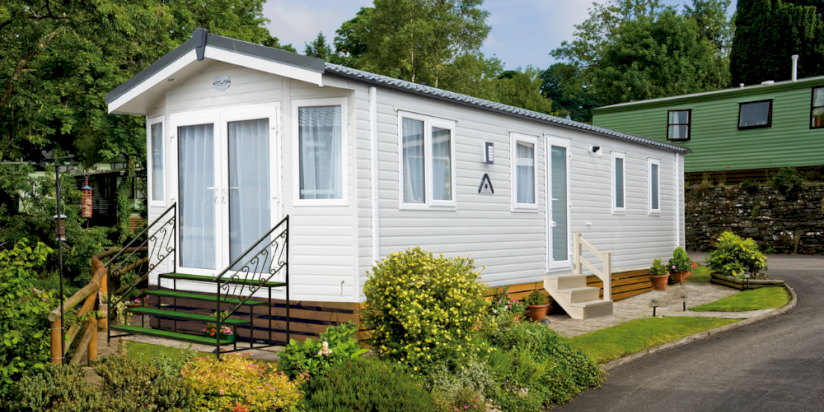
Subletting
Subletting is when you rent out your holiday home, some parks will manage this for you for a fee. It is important to bear in mind that not all parks allow this.
Looking specifically for a park that offers rentals? Click HERE
Touring Caravan/ Tourer
Touring caravans are vans with a tow bar. These are perfect for those who enjoy being on the road and visiting a range of sites. Some holiday parks will have allocated space for touring caravans.
Conclusion
Buying a static holiday caravan can be exciting and there are plenty of points you will need to consider before you buy. Above all, you should look carefully at your budget and sign up for applicable insurance.
UK holiday parks are welcoming places, however, do always make sure you retain all paperwork, and understand what you are paying for. There are many holiday parks and sites for you to choose from up and down the UK, which means the hardest task is comparing and contrasting between them all. Choose a static caravan that fits safely within your budget, and which is at a park that appeals to you.
Finally, for further reading see our article on ‘What to Remember When Buying a Holiday Home’.


